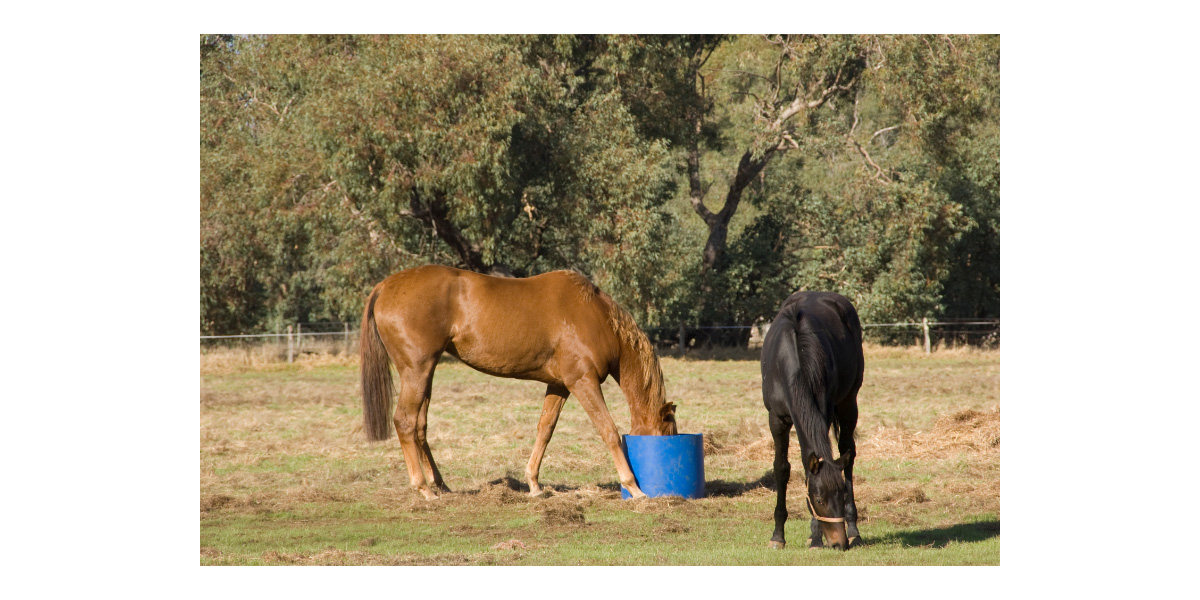
When you go inside for lunch on a hot summer day, you’ll probably prefer a light salad or sandwich over a heavy, wintry stew. Horses, too, feel and perform at their best when they eat weather-appropriate foods as the seasons change. Here’s how you can transition your horse to a summer diet to help them stand up to the long, scorching days ahead.
Why Your Horse’s Diet Should Change in the Summer
Horses are highly efficient at generating body heat through digestion. Grazing on high-fiber feeds and hay throughout a winter day helps them stay warm. In the summer, though, their winter diet will leave them feeling overheated, and can even put them at greater risk of heatstroke, colic, and dehydration.
Feed Less Fiber
During the summer, your horse can get much of their nutrition by grazing in the pasture, which is a low-fiber food source that’s also high in moisture. If you’ll still be feeding hay, you’ll want to switch to a low-fiber grass hay and/or feed.
Limit Protein in the Summer
You’ll also want to limit excess protein intake. Feed no more than your horse requires, as extra protein is broken down by the body and eliminated in the urine, a process that generates a lot of body heat, and also stimulates increased urination, which can put your horse at higher risk of dehydration.
Add More Fat
Fat is a great energy source for horses, and it generates little heat as the body breaks it down. It’s especially helpful for hard keepers that lose their appetite in the summer. Adding fat will help them keep weight on even if they’re eating less. Vegetable oils like corn or soybean oil, or fish oils like sardine or herring oils can be added to feed for a quick-burn source of energy.
Preventing Dehydration Through Diet
When your horse sweats, they lose both water and electrolytes. For the typical horse, it’s usually enough to add about two tablespoons of salt to their feed and offer all-day access to loose salt or a salt lick. Salt not only replenishes electrolytes but also stimulates thirst, helping to ensure your horse drinks enough water.
Speaking of water, make sure your horse’s trough or bucket is always clean and filled with cool water. Horses are more likely to drink water that’s about 50-60 degrees Fahrenheit. If needed, you can add a little bit of molasses, apple juice, or flavored electrolytes to prompt your horse to drink more.
Horses can have hydrating treats like watermelon, apples, and celery. You can even make horse-friendly ice pops by freezing fruit in a bucket of water. Horses love licking the ice to get to the treats inside.
Transition To Your Horse’s Summer Diet
To prevent digestive upset, slowly change your horse’s diet over a period of ten days, or more if they have a particularly sensitive stomach.
Talk to your veterinarian before making changes if your horse has a history of colic, laminitis, or other metabolic or digestive issues, or if you just need personalized guidance to plan the right diet for your horse’s age, body condition, and activity level.





































